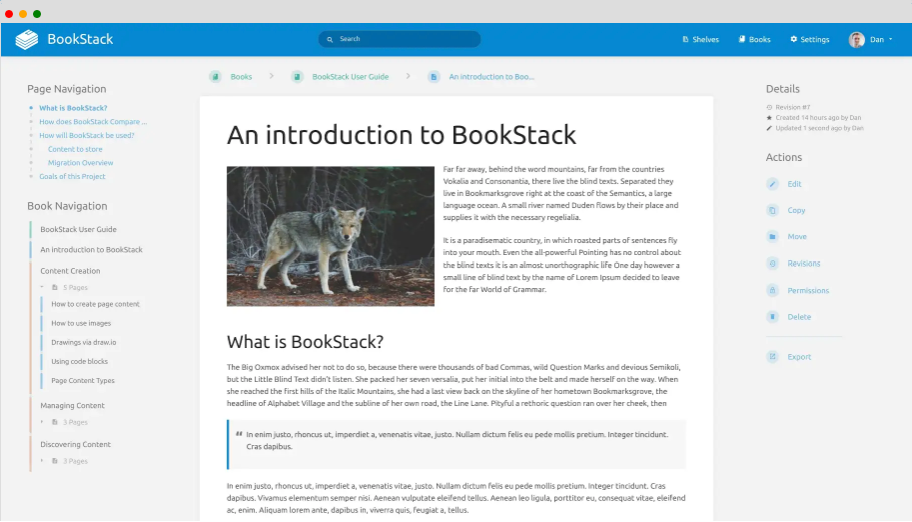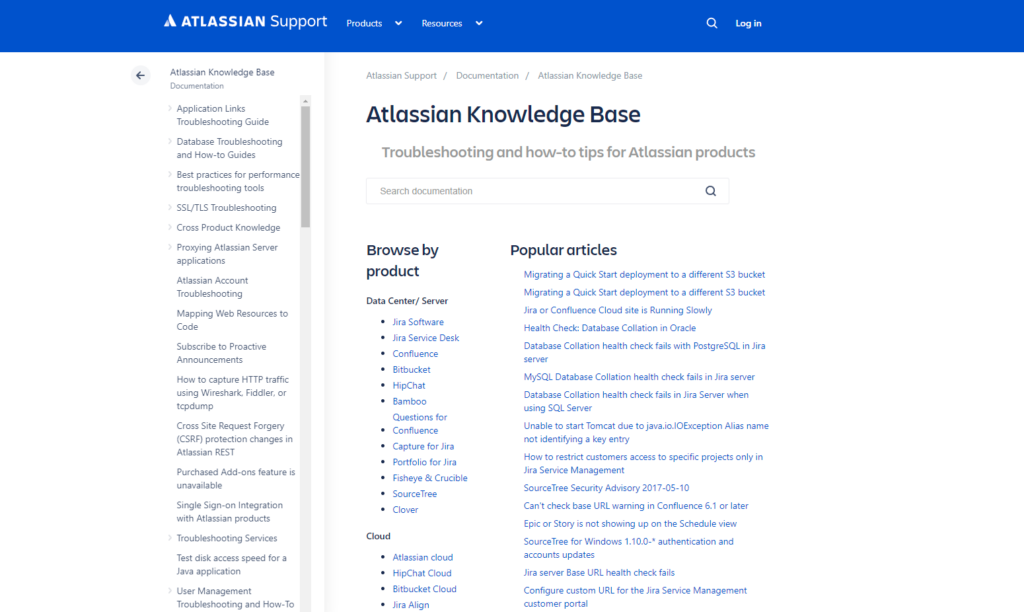10-Second Summary
- SaaS knowledge bases are characterized by their robust security, which significantly reduces vulnerabilities and improves compliance – ideal for companies that prioritize data protection.
- Open source wikis are best suited for companies with their own IT resources and offer extensive customization options and control over software management.
SaaS Vs. Open Source Wikis
Knowledge bases have become a cornerstone for companies and serve as a central hub for storing valuable information. Their importance has increased, especially in terms of ensuring robust security.
This is particularly important as knowledge bases often contain sensitive data ranging from internal documents to customer information.
Security Showdown
When it comes to managing these knowledge repositories, there are two main competitors: SaaS (Software as a Service) knowledge bases and open source wikis.
The former are cloud-hosted platforms managed by third-party providers, while the latter are freely available platforms that companies can modify and host themselves.
This article addresses the crucial question: which offers more security – the streamlined, provider-managed SaaS knowledge bases or the customizable, self-managed open source wikis?
Understanding Key Security Terms
In the world of knowledge bases, security is not just a feature, it is a necessity. It is important to understand the key terms.
- Data security: This is about protecting data from unauthorized access and tampering throughout its lifecycle.
- Access control: This is the selective restriction of access to data to ensure that only authorized individuals can view or modify it.
- Vulnerability management: This includes the detection, assessment, handling, and reporting of security vulnerabilities in systems and the software running on them.
The Imperative of Robust Security
The role of security in knowledge base management cannot be overstated. Whether it’s protecting trade secrets, customer data or internal communications, the security measures implemented have a direct impact on the integrity and trustworthiness of an organization.
In the following sections, we will examine how SaaS knowledge bases and open source wikis perform in this important aspect.
Challenges Of Open Source Wiki Security
Although open source wikis are flexible and customizable, they also come with a number of security risks. These include:
- Manual updates: Unlike SaaS platforms, open source wikis often need to be updated manually. This can lead to delays in fixing security vulnerabilities and increase risk.
- Self-managed hosting: Companies using open source solutions usually manage their hosting themselves, which requires a high level of IT expertise and constant vigilance to ensure security.

The Risks of Unpatched Systems
Unpatched security vulnerabilities are a major problem for open source wikis. Without regular updates and maintenance, these systems are more susceptible to security vulnerabilities that can compromise sensitive data and the integrity of the knowledge base. This requires a special approach to ongoing monitoring and maintenance, which can be resource-intensive for many organizations.
SaaS Knowledge Base Security Features
In this section, we look at the robust security features offered by SaaS knowledge bases. We explore how these systems take a multilayered approach to security that reflects the care and vigilance one takes when protecting something of value.
Industry Standard Multilayer Security
Most SaaS knowledge bases now use multi-layered security systems, a necessary standard in today’s digital landscape. This approach is like carrying precious cargo: just as drivers are extra careful when their loved ones are in the car, SaaS companies take the security of their customer data very seriously.
Data Backup and Reliability
Avoiding data loss is a top priority. SaaS knowledge bases employ rigorous backup strategies, including local and daily backups and power redundancy measures, to protect against data loss due to technical issues. The importance of such measures is demonstrated by the huge number of data breaches reported each year, highlighting the need for robust data security practices.

SSL Encryption
Secure Socket Layer (SSL) encryption is crucial in SaaS knowledge bases to secure data transmission. This includes applying for SSL certification and using cryptographic keys to help ensure that transmitted data remains secure and private. The presence of SSL encryption is usually indicated by a lock symbol in the address bar of the browser.
DDoS Protection
As DDoS attacks become more frequent and severe, SaaS knowledge bases place great importance on strong DDoS protection mechanisms. These are essential to protect against the increasing threat and sophistication of such attacks and to ensure service continuity and reliability.
Web Application Firewall (WAF) and Enterprise Firewalls
To further enhance security, SaaS knowledge bases employ Web Application Firewalls (WAF) and enterprise firewalls with IPSec VPN capabilities. These technologies provide robust protection against various cyber threats, including cross-site scripting and SQL injections, and ensure secure data management within the network.
The Managed Hosting Advantage
One of the outstanding advantages of SaaS is managed hosting. This means that the SaaS provider monitors the infrastructure and ensures that optimal security standards are maintained. Furthermore, remote security monitoring by the provider offers additional protection, as it keeps a watchful eye on potential threats and can respond quickly to security incidents.
SaaS Vs. Open Source Wikis: Security Analysis
The table below compares the key differences between SaaS knowledge bases and open source wikis in terms of security features and highlights the advantages of SaaS in terms of security management and compliance.
| Feature | SaaS Knowledge Bases | Open Source Wikis |
|---|---|---|
| Updates | Automated security updates | Manual updates, potential delay in patches |
| Hosting | Managed hosting by provider | Self-managed hosting, requires IT resources |
| Security Measures | Advanced firewalls, intrusion detection, comprehensive data encryption | Varies based on implementation, often less comprehensive |
| Compliance | Often adhere to security standards and regulations | Compliance depends on organization’s efforts |
The SaaS Edge in Security
The managed nature of SaaS solutions and their comprehensive, up-to-date security features are generally superior to open source wikis when it comes to reducing vulnerabilities and improving overall compliance.
This makes SaaS platforms a more robust and secure choice for organizations that value the security of their knowledge bases.
MORE: Read our review of Bit.ai, a modern document and wiki collaboration platform.
Which Solution to Use?
We have learned that SaaS knowledge bases have an advantage when it comes to security. Does this mean that we should always prefer them to open source wikis?
No. Open source wikis still have their place. Let’s look at the most common use cases and consider which organizations should use SaaS knowledge bases (and when) and which should use open source wikis.
When to Use Open Source Wikis
- Ideal for organizations with strong IT teams that value customization and direct control over their software.
- Suitable for smaller companies or startups with limited budgets, as open source wikis are often free or low-cost.
- Beneficial for those who prefer community-based support and collaborative development.
When to Use SaaS Knowledge Bases
- Best for organizations prioritizing data security, especially those handling sensitive information.
- Ideal for companies seeking a hassle-free solution with managed hosting and automatic updates.
- Suitable for businesses planning to scale quickly, as SaaS solutions can easily adapt to growing demands.
Bottom Line
We explored the critical aspects of security in SaaS knowledge bases compared to open source wikis. While open source wikis offer customization options and cost advantages, SaaS knowledge bases are characterized by their improved security, ease of use and scalability.
Understanding these differences is key to choosing the right knowledge management solution to meet your organization’s needs, whether the focus is on control and customizability or security and ease of maintenance.
Author
Methodology
- Who?
We are SaaS experts: Our specialists constantly seek the most relevant information to help support your SaaS business. - Why?
We are passionate about users accessing fair SaaS pricing: We offer up-to-date pricing data, reviews, new tools, blogs and research to help you make informed SaaS pricing decisions. - How?
With accurate information: Our website manager tests each software to add a Genius Score using our rating methodology to each product. Our editorial team fact-check every piece of content we publish, and we use first-hand testing, value metrics and leading market data.
